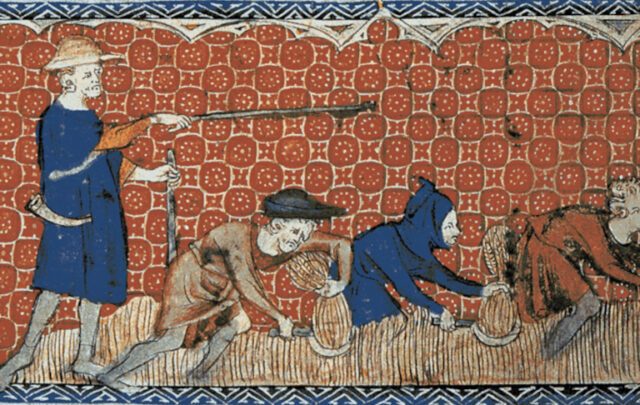
Alex Cedeño at home with his children, Marzia, who just turned 1 and Yalex, 2. Photo by Paul Dunn.
Alex Cedeño quit renting two years ago. Now, he has just two years left until he owns his own home. And it’s all thanks to his employer, Evergreen Cooperatives.
Evergreen started this unique home-buyers program three years ago. Today, nearly half of its worker-owners have purchased homes through the program. Home ownership was unlikely for them before; many have bad credit or criminal records. Cedeño simply couldn’t afford the traditional route, which would have meant a down payment—and debt. “I didn’t want to have debts so large,” he explains, “so this opportunity came, and I took advantage of it.”
The cooperative accomplishes this by selling formerly foreclosed or boarded-up homes in Cleveland neighborhoods. This keeps worker-owners close to work and allows them to contribute to Cleveland neighborhoods’ revitalization. Today, nearly half of Evergreen’s worker-owners have purchased homes through the program. Cedeño’s house is in Glenville, a neighborhood where two sectors of the cooperative are located. Through weekly payroll deductions and property tax abatement, these $15,000 to $30,000 homes are theirs within four to six years. Cedeño calls his maravilloso, or wonderful.
To be eligible, however, worker-owners must be accepted into the home-buyers program. Evergreen CEO John McMicken says about 75 to 80 percent of worker-owners are accepted. They take financial training classes with the Cleveland Housing Network, a partner with the program. The loan approval process is the last step. If all goes as planned, they can finally purchase a home.
McMicken sees the home-buyers program as a win-win-win. The community fills its houses. Worker-owners, instead of fleeing neighborhoods like Glenville, remain and feed their economy. As for Evergreen? It’s a step closer to accomplishing its mission of building local wealth.
Glenville could use a win. The real estate crash and Great Recession hit the neighborhood hard. It suffered devastating foreclosure rates, among the highest in Cleveland. This is what made it so easy for Evergreen to find houses for its program: So many were empty.
The home-buyers program is the only one of its kind for now, but McMicken is in talks with municipalities in Detroit, New Orleans, and Baltimore that are keeping their eyes on Evergreen. Cedeño wouldn’t mind seeing the program expand. After all, he pays less now than what he used to pay for rent.
“It’s helped me so much,” he says. “I paid $400 for rent, and now I’m paying $300 for mortgage, for something that will be mine one day.”
That day is only two years away.





